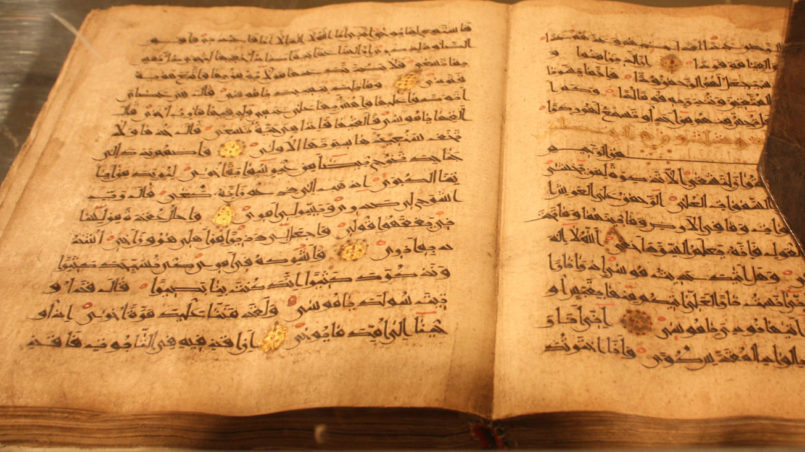Islamic Feminism: Not a Misnomer

The first time I heard the term, “Islamic feminism”, I thought it’s a misnomer. As most people would react, I thought about how feminism can proceed from Islam, which is usually viewed to be one of the main reasons behind the oppression of women in Muslim societies. I really could not believe my ears and thought it to be a passing fad. But I was really curious to learn more about this concept of Islamic feminism, as I initially thought the words are self-contradictory.
I started to read about it and now I understand what it means and how its proponents have explained the ways Islam can be a credible source of women’s rights and emancipation.
Islamic feminism has its roots in the Arab world in the nineteenth century and appeared first in Egypt, Iran, and Morocco. Later, it started to spread to other parts of western Asia and North Africa. Islamic feminism proposes the application of the practice of ijtihad, which means an independent and critical examination of religious texts. This is done in order to examine the existing patriarchal notions and customs for the liberation of women and their rights.
Islamic feminism first developed in those parts of the Middle East and North Africa (MENA) where ‘Islamism’ and ‘political Islam’ had a stronghold. As new actors in the feminist struggle, the Islamic feminists made certain assertions which proved quite appealing and more useful than those of the liberal feminists.
Liberal feminism appeared a ‘westernised’ concept irrespective of its attempt to adapt to the MENA context. Islamic feminism, through its humanist interpretation of Islamic practices, furthers the cause of gender equality. Muslim feminists support their claims in favor of women and their criticism of patriarchy is based on their interpretation of the Quran. Although they criticize the misuse of religion by a male-dominated society to curb women’s freedom they, however, do not reject or undermine the institution of religion. Islamic feminism demands a turn to the faith, for the benefit of women but what they reject is a male-oriented interpretation and the practices of the faith.
A wave of religiously-committed women arose and challenged the very notion of the conservatives, who assert that women should be kept at home and perform their traditional roles. Islamic feminists focused on the role of women in Islamic cultures such as Raddiya Sultana, Shajarat-al-Darr, Aisha-al- Huraira and Sitt-al-mulk. They also talked about the Queen of Sheeba, who is praised for her intelligence and leadership in the Quran. They also glorify Khadija, Ayesha, Umme Salama, wives of Mohammad, and Fatima, his daughter for their role in Islam.
Islamic feminism uses tafsir as its basic methodology. Along with these tools, they also use linguistics, history, literary criticism, sociology, and anthropology.
Islamic feminists such as Amina Wadud, Rifat Hasan, and Fatima Naseef centered their attention on the interpretation of the Quran. While others like Fatima Mernissi, Asma Barlas, Hidayet Tuksal scrutinized the formation of sharia-backed laws and others re-examine the Hadiths.
Islamic feminists re-read and interpret the Quran on a variety of issues furthering the argument that the Quran does not support patriarchy. They argue that the Quran is anti-patriarchal and that it supports complete equality of the sexes. These feminists believe that no-one has a monopoly over the meaning of what God says and thus a reinterpretation of the patriarchal teaching of the Quran is necessary.
According to Islamic feminists, Muslim women suffered because of the worst interpretation of Islam. According to them, the rampant misogynistic practices are a result of cultural infiltration between Islam and other parts of the Middle East. According to some Islamic feminists, the superiority accorded to man is due to a misreading and misinterpretation of the Quran.
These feminists highlight the rights of women in Islam. They argue that men have deliberately distorted Sharia and use it as an instrument of patriarchy today. This has been made possible because women never had the chance to interpret Sharia in a gender-sensitive context. They also argue that the original message of Prophet Mohammad, which calls for equality between the sexes, has been misrepresented by religious scholars and political leaders.
There is much more to Islamic feminism and it is an interesting way to review our perceptions of Islam and its role in the oppression of women.
Credits
| Image | Title | Author | License |
|---|---|---|---|
 |
Quran_rzabasi4 | Photo:Self Calligraphy:Unknown | CC BY-SA 3.0 |
